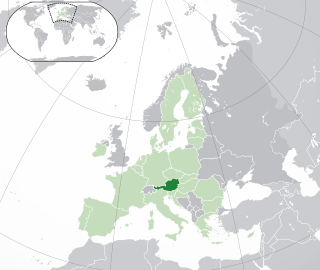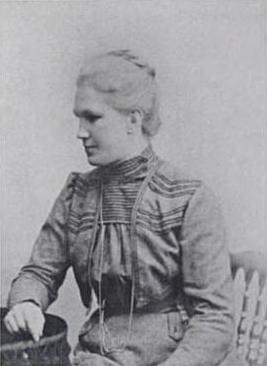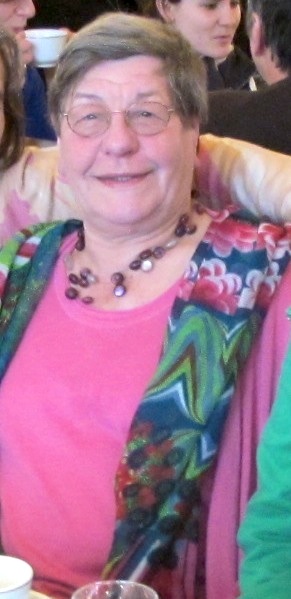Related Research Articles

Lesbian, gay, bisexual, and transgender (LGBT) rights in Austria have advanced significantly in the 21st century, and are now considered generally progressive. Both male and female forms of same-sex sexual activity are legal in Austria. Registered partnerships were introduced in 2010, giving same-sex couples some of the rights of marriage. Stepchild adoption was legalised in 2013, while full joint adoption was legalised by the Constitutional Court of Austria in 2016. On 5 December 2017, the Austrian Constitutional Court decided to legalise same-sex marriage, and the ruling went into effect on 1 January 2019.

Emil Brix is an Austrian diplomat and historian.

Auguste Fickert was a pioneering Austrian feminist and social reformer. Her politics were on the left wing of Austrian feminism and she allied with proletarian organizations in campaigns around education and legal protection for working-class women.

Josef Haslinger is an Austrian writer.
Peter A. Bruck is former CEO and Chief Researcher of the Research Studios Austria Forschungsgesellschaft mbH and founder of the spin-off KnowledgeFox. Bruck is also honorary President of the ICNM-International Center for New Media, Salzburg, which selects and promotes best practice in ICT applications and multimedia content nationally in Austria, at the European level and globally under auspices of the United Nations. Chairman of the Board the European Academy of Digital Media-EADiM, Netherlands, Chairman of the Board of Directors the World Summit Award within the framework of the United Nations process of the World Summit on the Information Society (WSIS) and President of the European Academy of MicroLearning (Austria)

Cannabis in Austria is legal for scientific and medical usage, but illegal for recreational usage. Possession of small amounts for personal use was decriminalized in 2016. The sale of cannabis seeds and plants is legal.

Ilse Kokula is a German sociologist, educator, author and lesbian activist in the field of lesbian life. She was awarded the Order of Merit of the Federal Republic of Germany.
Christa Ehrmann-Hämmerle is a Swiss-born Austrian historian. She is Associate Professor of Modern History at the University of Vienna. Her work focuses on military history, particularly World War 1, as well as women and gender history of the 19th and 20th centuries. Since 2011, she has been a spokeswoman for the Military History Working Group. She is co-founder and co-editor of the scientific journal L'Homme - Europäische Zeitschrift für Feministische Geschichtswissenschaft.
Edith Saurer was an Austrian historian, university professor at the University of Vienna, scientific author, and publisher. She is regarded as a central cofounder and advocate of feminist historiography in Austria. She received the Käthe Leichter Prize, Gabriele Possanner State Prize, and the Golden Medal for her services to the State of Vienna.
Claudia von Werlhof is a German sociologist and political scientist. She held the first professorship for women's studies in Austria, based at the Institute for Political Science at the University of Innsbruck.
Ilse Erika Korotin is an Austrian philosopher and sociologist. She researched and published on the history of ideas of Nazism. At the Institute for Science and Art in Vienna, she heads the Documentation Centre for Women's Studies. Her work focuses on feminist biographical research and history of science.
Fritz Walden, real name Friedrich Drobilitsch, also Fritz Drobilitsch-Walden and Franz Drobilitsch, was an Austrian publicist, author and cultural editor as well as film, literature, music and theatre critic.
Kerstin Susanne Jobst is a German historian and professor. Since 2012 she has taught at the Institute for East European History at the University of Vienna.
Sibylle von Bolla-Kotek was an Austrian scholar of legal history and the first female professor in a legal faculty in Austria.
Franz Samohyl was an Austrian violinist, concertmaster of the Vienna State Opera and academic teacher.

The Institute for Austrian Historic Research is a history research institution in Vienna, Austria. Established in 1854, since 2016 it is part of the University of Vienna.
Vienna, the capital of Austria, has an active LGBTQIA+ community. Vienna is considered Austria's queer capital, with several LGBTQIA+ spaces, organisations and a history of LGBTQIA+ activism going back to the late 19th century.
Ingvild Birkhan née Bach is an Austrian philosopher and women's studies researcher.
Eva Cyba is an Austrian sociologist. Her research, teaching and publications focus on sociological theories of social inequality, feminist theories and women's studies, in particular women in the world of work. She is the winner of the Käthe-Leichter-Staatspreis. Her book Gender and Social Inequality is considered a fundamental work of sociological gender research.
Veronika Bennholdt-Thomsen is a German ethnologist and sociologist. She has also lived in Mexico since 1966, first for study, then for research.
References
- ↑ "Hanna Hacker". Mediashop. Retrieved 2019-08-05.
- 1 2 3 4 "Kurzbiografie Hanna Hacker" (PDF). Institut für Zeitgeschichte, Universität Wien. 2017. Retrieved 2019-08-05.
- ↑ "u:find – Hanna Hacker". Universität Wien. Retrieved 2019-08-05.
- ↑ "20 Jahre STICHWORT – eine kleine Chronologie" (Heft 16). 2003. pp. 10–13. Retrieved 2022-06-28.